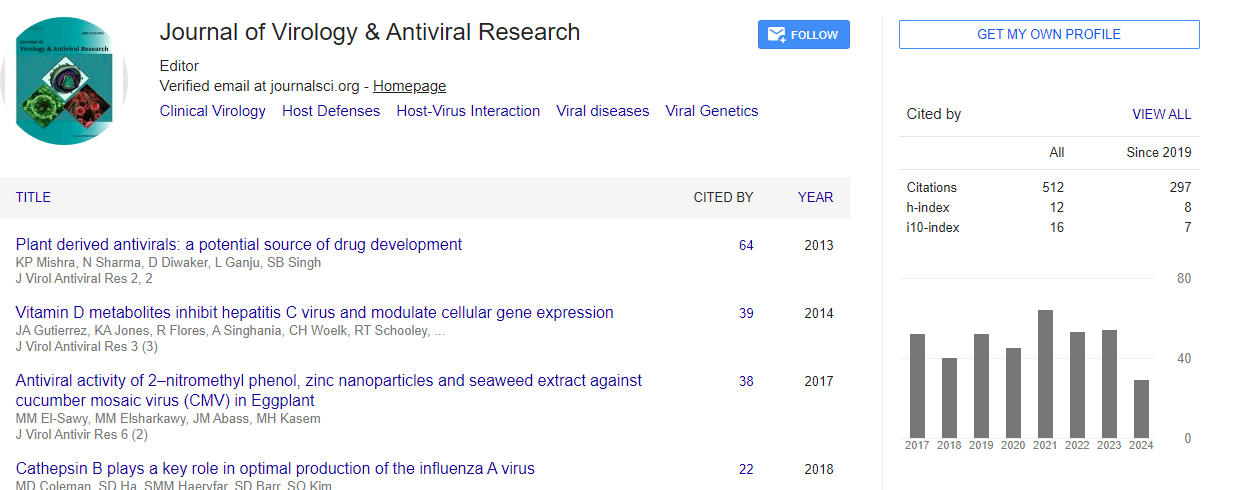A novel approach for vaccine designing against visceral leishmaniasis
Sabiha Imran
Manav Rachna International University, India
: J Virol Antivir Res
Abstract
Leishmaniasis is a vector-borne disease caused by different species of protozoan parasites of the genus Leishmania. It is a major health problem yet neglected by tropical diseases, with approximately worldwide 350 million people at risk and more than 1.5 million infections occurring each year. Leishmaniasis has different clinical manifestations, including visceral (VL or kala-azar), cutaneous (CL), mucocutaneous (MCL), diffuse cutaneous (DCL) and post kala-azar dermal leishmaniasis (PKDL). Among the three clinical forms of leishmaniasis (cutaneous, mucosal, and visceral), visceral leishmaniasis (VL) accounts for the majority of mortality and if left untreated VL is almost fatal. Infection Caused with Leishmania donovani or L. infantum & VL represents a serious public health problem in endemic regions and is rapidly emerging as an opportunistic infection in HIV patients. Now currently, the only mean to treat and control leishmaniasis is by rational medications and vector control. However, the number of available drugs is limited and even these are either exorbitantly priced, have toxic side effects or prove ineffective due to the emergence of resistant strains. On the other hand, the vector control methods are not so efficient; therefore, there is an urgent need for developing a safe, effective, and affordable vaccine for the prevention of leishmaniasis, although in recent years a large body of researchers has concentrated their efforts on this issue, but only three vaccine candidates have gone for clinical trial, until date. These are: (i) killed vaccine in Brazil for human immunotherapy; (ii) live attenuated vaccine for humans in Uzbekistan and (iii) second-generation vaccine for dog prophylaxis in Brazil. In endemic areas, the majority of infected do not develop clinical symptoms and past infection which leads to robust immunity, against reinfection. Thus, the development of vaccine for Leishmania is a realistic public health goal, hence this paper summarizes advances in vaccination strategies and challenges against VL.
Biography
Sabiha Imran is a Medical Microbiologist and Associate Professor in the Department of Biotechnology, Faculty of Engineering and Science, Manav Rachna University, Faridabad, INDIA. She has more than 20 years research and teaching experience She earned her PhD in Medical Microbiology from JN Medical College, Aligarh Muslim University .She published research papers in reputed journals and presented papers in many national and International journals .She received best paper presentation award from All India Medical Sciences .She is a gold medalist and a qualified Registered microbiologist of Canadian College of Microbiology(RMCCM). Her area of research interest is the study on Bacteriocin as an anticancer, antiviral agent and an alternative to antibiotics and immunochemotherpeutic approach for the treatment of visceral leishmaniasis.
 Spanish
Spanish  Chinese
Chinese  Russian
Russian  German
German  French
French  Japanese
Japanese  Portuguese
Portuguese  Hindi
Hindi 

